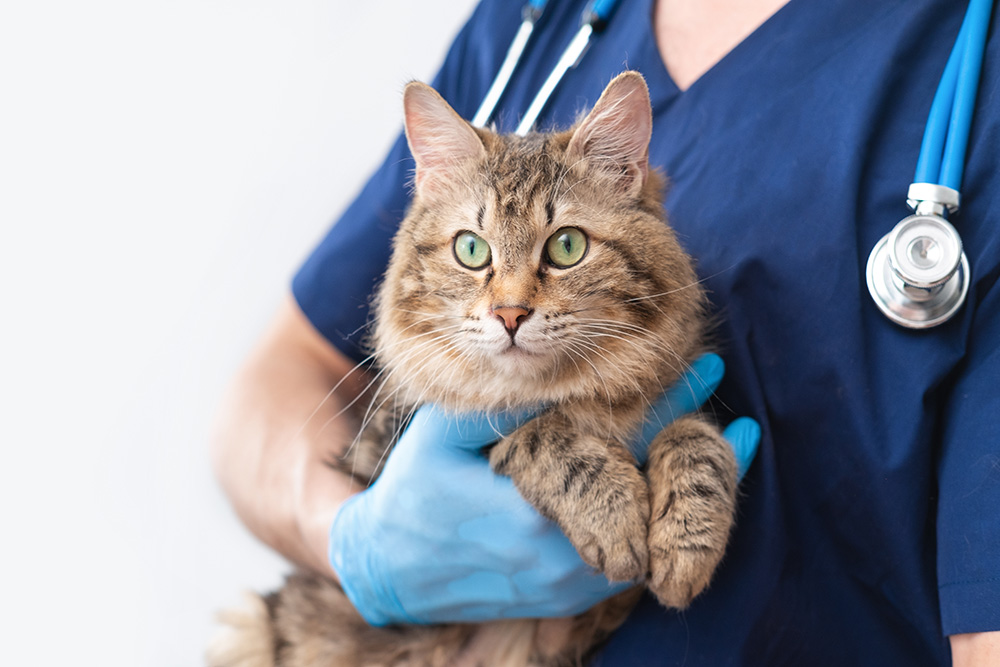Pet Emergency Preparedness: What Every Pet Owner Should Know
How to Protect Your Pet Before, During, and After an Emergency
Emergencies often arrive without warning—and in Pinedale, where remote terrain and weather events can complicate access to care, being prepared is the best way to protect your pet’s safety and health. From natural disasters to sudden injuries, pet emergencies require fast, informed action. At Pinedale Animal Hospital, we’re here to help you prepare with confidence and care.
Why Emergency Preparedness for Pets Matters
Pet emergencies range from accidental poisoning to heatstroke, trauma, or choking. According to the American Veterinary Medical Association (AVMA), a rapid response can significantly improve outcomes in critical situations. A well-prepared owner can save precious time, minimize pain, and even save a pet’s life.
Build Your Pet Emergency Kit
Your emergency kit should be stored in an easily accessible, waterproof container and updated regularly. Include the following:
First Aid Essentials
- Gauze, bandage tape, antiseptic wipes, tweezers, blunt scissors
- Styptic powder, Benadryl, sterile saline eye wash
- Digital thermometer (for pets), disposable gloves
- Pet-specific first aid manual from a veterinary source
Medications & Records
- A 3–5 day supply of your pet’s medications
- Copies of medical records, allergies, and current vaccinations
- Your vet’s contact info and emergency hospital details
Food, Water, and Comfort Items
- 3 days of food and bottled water in airtight containers
- Bowls, poop bags, litter box (for cats), leash, and harness
- A familiar blanket, toy, or shirt to reduce stress
Emergency Situations: What to Do
Poisoning
Signs: Vomiting, shaking, excessive drooling, seizures
- Contact ASPCA Poison Control at 888-426-4435 (available 24/7)
- Remove access to the substance and do not induce vomiting unless instructed
Trauma or Injury
Signs: Limping, bleeding, swelling, yelping
- Clean minor wounds with antiseptic and apply light bandaging
- Keep your pet calm and transport gently to the vet
Choking
Signs: Pawing at mouth, gagging, blue gums
- Learn how to perform the dog Heimlich maneuver
- Do not reach down your pet’s throat unless visible obstruction is present
Breathing Difficulty or Collapse
- Signs like open-mouth breathing, labored breath, or collapse are serious
- Review this Respiratory Distress in Pets guide (PDF)
- Seek emergency veterinary care immediately
Not sure if it’s an emergency? This checklist from the AAHA can help you decide.
Learn Pet First Aid Before You Need It
Understanding the basics of CPR, wound care, and safe transport can save lives. We recommend enrolling in a Cat and Dog First Aid Class by the American Red Cross. These courses empower pet owners to:
- Perform CPR
- Recognize signs of distress
- Respond quickly and calmly in crisis
You can also practice home exams using this step-by-step guide from the Humane Society.
Create a Pet Evacuation Plan
If you need to evacuate your home due to weather or fire, your pet must be part of the plan. Make a pet “Bug-out bag” with your emergency items and keep everything in an easy-to-grab bag.
Include:
- Microchipping + ID tags with current contact info
- Carrier, leash, or crate labeled with your pet’s name and emergency contact
- A list of pet-friendly shelters or hotels in your area
- First aid kit, emergency kit with food and water for at least 3 days,
Explore local sheltering options with AAHA’s guide: A Storm’s Blowing In: Finding Shelter for Your Pet
Prevention: The Best Emergency Strategy
Regular wellness care is your first line of defense. Preventive strategies include:
- Routine check-ups to catch issues early
- Vaccinations and parasite prevention
- Pet-proofing your home by storing toxins, foods like grapes and chocolate, and small objects out of reach
For more ways to avoid emergencies, read Preventing Pet Emergencies by UW-Madison Vet Med

Local Emergency Resources in Pinedale
Emergency Vet Care
Pinedale Animal Hospital provides emergency care and guidance for urgent pet issues after-hours in a limited capacity. Call us to learn more about hours and services..
FAQs: Pet Emergency Preparedness
What are signs I should go to the vet immediately?
Seizures, profuse bleeding, unconsciousness, repeated vomiting, and difficulty breathing all warrant immediate care.
Can I treat my pet at home?
Basic first aid is helpful, but professional veterinary care is always advised for anything beyond minor wounds or superficial injuries.
How often should I update my emergency kit?
Every 6 months, or sooner if food/medications expire or your pet’s health needs change.
At Pinedale Animal Hospital, we’re here not just for emergencies—but to help you prevent them. Preparing today ensures peace of mind tomorrow.







Leave A Comment